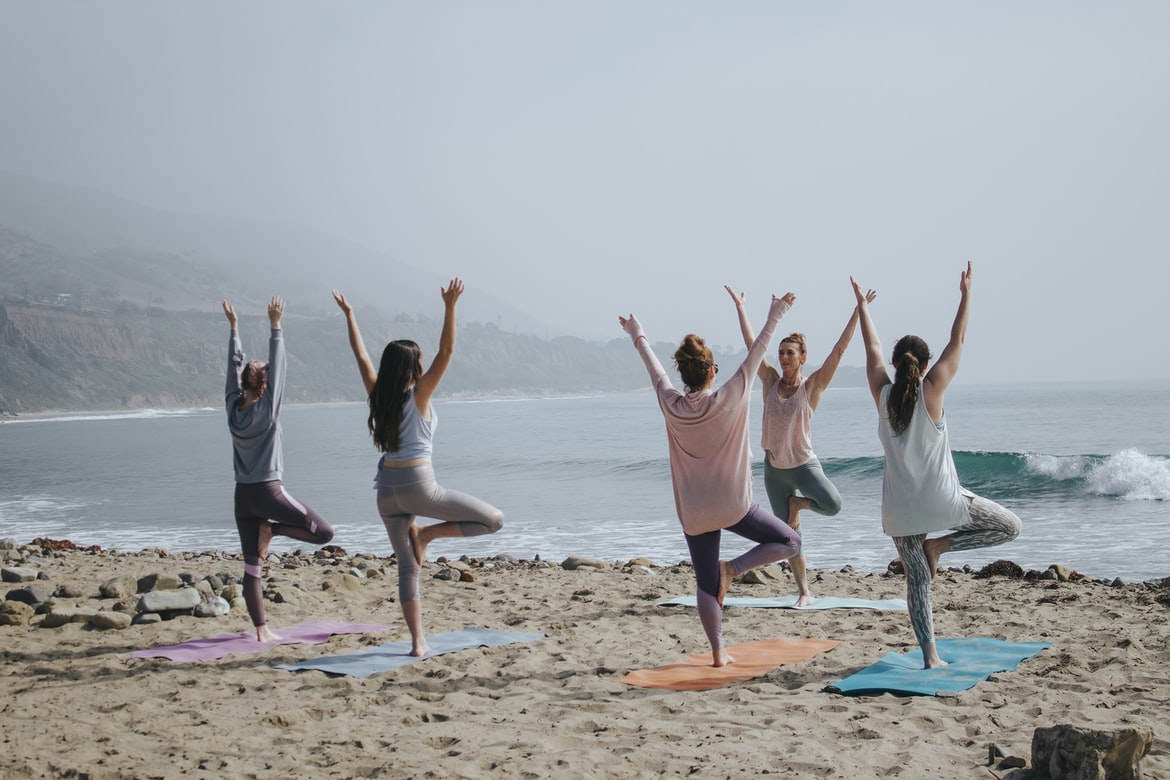Summary | Excerpt | Reviews | Beyond the Book | Read-Alikes | Genres & Themes | Author Bio

This article relates to This Might Hurt
 The events of This Might Hurt by Stephanie Wrobel take place predominantly at Wisewood, a fictional island retreat off the coast of Maine that purportedly focuses on self-improvement techniques and conquering one's inner fears. The concept of a mental health "retreat" is by no means foreign to Americans, and wellness tourism has grown into a multi-billion dollar industry globally. Given this, self-improvement retreats reminiscent of Wisewood in either form or function are not only conceivable but already among a range of available options for those on the quest for a transformative vacation experience.
The events of This Might Hurt by Stephanie Wrobel take place predominantly at Wisewood, a fictional island retreat off the coast of Maine that purportedly focuses on self-improvement techniques and conquering one's inner fears. The concept of a mental health "retreat" is by no means foreign to Americans, and wellness tourism has grown into a multi-billion dollar industry globally. Given this, self-improvement retreats reminiscent of Wisewood in either form or function are not only conceivable but already among a range of available options for those on the quest for a transformative vacation experience.
"Wellness tourism" is an unofficial umbrella term for any and all travel oriented towards one's well-being, often with an emphasis on spas or hot springs where physical health is the primary objective, and may include spiritual, mental health or self-improvement retreats.
It is particularly popular among middle-aged people, especially women, and several background factors may explain why this is. In some societies, experts believe people in their late 40s to mid-50s largely represent the bottom of the so-called "U-bend" life trajectory, where they are the least content relative to both their younger and older age cohorts. Some may recognize this as the infamous mid-life crisis phenomenon. Studies note that this period of life can be marked by conflicting feelings that come alongside the onset of life-changing circumstances that affect one's sense of identity. For example, people in this age bracket may struggle to multitask through new career and family developments, all the while holding onto a prior sense of identity from when they were younger or single. A wellness or spiritual retreat could be appealing for individuals in this stage who wish to take a step back, detox and focus on developing healthier habits in a nurturing environment; or alternatively, to reconnect with their inner self on a transcendent level. Moreover, in contrast to men, who tend to enjoy task-oriented retreat activities like mountaineering or hiking, a wellness resort may be more likely to be appreciated by women, who tend to place stock in the quality of the stay as an experience in itself.
According to a 2017 study on wellness tourism, many seek indulgence and a place to relax far from their hectic modern lives; others wish to take a more productive approach to their vacation time and focus on improving an aspect of their lives like becoming healthier or gaining self-confidence. In the case of the latter, the wellness retreat can act as an "immersive experience" that enriches a person's sense of fulfillment, be it bodily, mental, social or metaphysical. Spiritual and religious retreats may offer structured spaces for meditation, quiet contemplation and/or prayer, whereas certain physical health retreats may operate under a strict regimen of healthy lifestyle habits. Class offerings across resort categories generally include activities such as yoga, meditation or t'ai chi, and it is not unusual for guests to participate in other group bonding activities for fun. Regardless of the type of retreat, guests will normally be treated to healthy meals and a chance to connect with the natural environment surrounding the resort facilities. Whether one chooses evening chakra yoga classes in upland Maui or a seven-day silent meditation retreat in the Finger Lakes region of New York State, the location can be just as important in determining the essence of the experience as the activity.
It is noted in the above study that it is difficult to establish a direct correlation between individual health benefits and the wellness retreat experience. A decrease in one's perceived stress levels, for example, could conceivably be as much the result of taking a week off work as having spent that time engaged in daily group vinyasa yoga classes and eating plant-based meals. Nonetheless, participants have consistently reported a variety of benefits in their own experiences, not the least of which include varying degrees of recovery from physical or mental ailments, a renewed sense of autonomy, and an overall positive impact on their life. Rules limiting the use of electronics and social media alone may also be beneficial, as well as scheduling the guests' sleep routine during natural non-daylight hours, which is known to support a reduction in chronic disease. On the other hand, regressing into old habits and unhealthy lifestyle patterns is inevitable for many participants after their stay. If nothing else, the existence of these retreats may offer a reminder of the importance of our own willpower to make and maintain positive changes in our lives.
Group yoga on a beach, photo by Kaylee Garrett
Filed under Cultural Curiosities
![]() This "beyond the book article" relates to This Might Hurt. It originally ran in March 2022 and has been updated for the
January 2023 paperback edition.
Go to magazine.
This "beyond the book article" relates to This Might Hurt. It originally ran in March 2022 and has been updated for the
January 2023 paperback edition.
Go to magazine.
Your guide toexceptional books
BookBrowse seeks out and recommends the best in contemporary fiction and nonfiction—books that not only engage and entertain but also deepen our understanding of ourselves and the world around us.